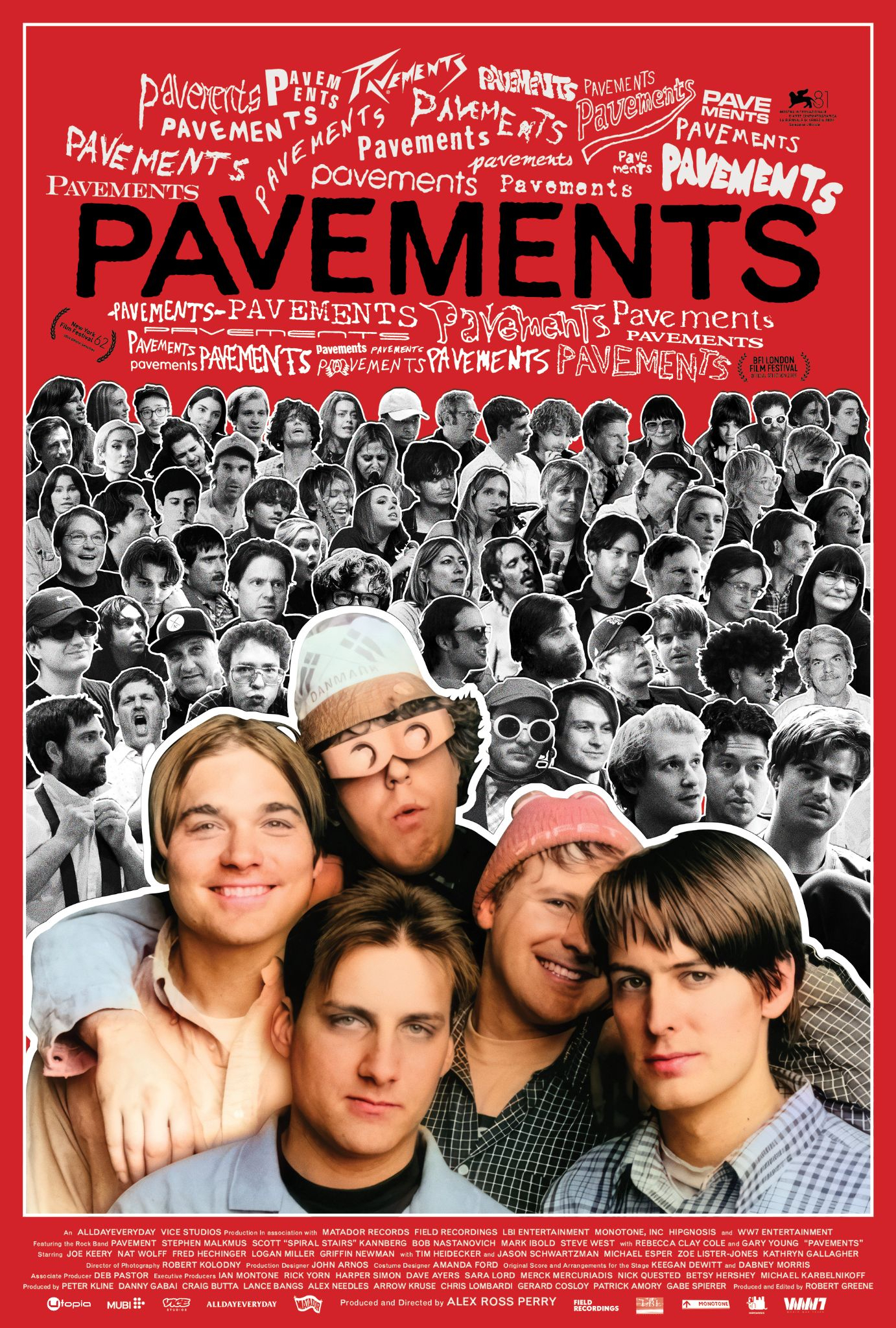(Warning: Vox Lux spoilers ahead.)
Over the last couple decades, there's been a shift in the way we discuss pop culture. It has been, for lack of a better word, called poptimism, which has resulted in a race to analyze the lowest common denominator as high art. Originally started as a welcome way to amplify music that was often undervalued and ignored by largely straight white male critics, it's also ended up making pop music and many celebrities infallible and beyond reproach. It's encouraged unrealistic expectations and uncompromising views.
In a lot of ways, Vox Lux is a response to that, a surreal composite of two of the 21st century's major threads: the over-intellectualization of pop culture and the proliferation of terrible acts of violence. The film argues that maybe pop is not the best form of escapism, while also rejecting the notion that pop music can accurately reflect the end-times hellscape we actually live in. It's a caustic look at what we as a society want from celebrities and why it might not matter what they actually give us.
Vox Lux begins with a gruesome school shooting that is, in essence, then used for the clicks. The movie begins in 1999, but the viral nature of its main character's rise to fame -- she's filmed singing at a vigil for her fellow students who did not survive -- feels more like something out of this decade. It's the kind of feel-good story that places narrative over quality, that values the how more so than the what. Her rise is contextualized by Behind The Music-esque narration from Willem Dafoe, who ironically lays out her career with all the snark (at one point during a childhood home video montage he quips, "At least then she was still writing her own lyrics") and blunt logical leaps (the film's final conclusion attributes Celeste's success to a literal deal with the devil) of your average Twitter user.
The through-line in Vox Lux is the transformation of Celeste into a pop sensation. (Ahem, A Star Is Born.) We catch her when she first becomes famous (then played by Raffey Cassidy), right after the school shooting that left a bullet lodged in her spine -- throughout the film, into adulthood, she wears a signature collar that makes it look like she's constantly being choked. We see the seedy manager who latches onto her for his own financial gain, the record label publicist who sees the potential and dollar signs in her school shooting angle, the sister with singing aspirations of her own who is neglected and relegated to the background. It's a perfect storm of opportunism and jealousy. The tragedy of her circumstances are very quickly left by the wayside -- soon enough, she is just another cog in the machine.
Vox Lux then jumps ahead and we join her in 2017, where she's been through the celebrity ringer -- she's towing scandals and baggage in her wake, but her next album, her sixth, will signal her rebirth, she says. The album's also called Vox Lux, and in an especially biting conversation with a table full of journalists, she emptily calls them her "sci-fi anthems." It doesn't really matter what they're about, after all -- they're selling her story. It's the day of her big comeback concert, and she's staging it on Staten Island, right in the hometown where an act of terrorism kickstarted her career two decades before. It's the classic back-to-roots narrative that many a pop star has undergone, except Celeste's roots happen to be at the darkest heart of culture today.
Vox Lux complicates things, adds new wrinkles in without necessarily answering them satisfactorily. There's another shooting right at the time jump, this time in a Central European country -- a crew of gunmen mow down a beach club, wearing the same glittery masks made iconic by one of Celeste's first music videos. It sends Celeste on a spiral, revisiting a past she thought she had successfully put behind her.
When we see grown-up Celeste (now played by Natalie Portman) halfway through the film, she is cold and irrational and wholly unlikable. She is deeply narcissistic and also painfully insecure. There's a fantastic scene towards the end of the movie, in the dressing room right before Celeste is supposed to get on stage for her big comeback, where she's unintelligibly blubbering about how her fans see her as a queen but sometimes she just doesn't feel like a queen. "I'm ugly," she cries melodramatically.
[videoembed size="full_width" alignment="center"][/videoembed]
Vox Lux takes place in a heightened, extremist reality. No one pop star ticks all of these boxes, but there are echoes of Celeste throughout the industry: from the public breakdowns of Britney Spears to the high-art posturing of Lady Gaga to the expectations placed on Ariana Grande after a literal act of terrorism led the public to wonder how she would follow up such a tragedy with new music. There's also a sense of the rallying-the-troops mentality you see in every pop star's online fandom, though notably the one perspective that is never heard from in Vox Lux is the fans -- they are legion, apparently, but completely off-screen.
In one scene, Celeste takes her daughter (also played by Cassidy) out to lunch at a diner around the block from her hotel. There's a disconnect to their entire conversation -- Celeste is so wrapped up in her perceived public perception that her daughter can barely follow what she's saying. At one point, Celeste says that what she makes doesn't actually matter anymore. She can do anything and her fans will love her. She recalls her earliest music videos, proud of the artistic integrity she once felt she had, but now she jokes about her latest work. She derides a perfume commercial where she looks like an idiot, emerging from a digital flower. And guess what? Her fans still ate it up.
Vox Lux is a cynical send-up of how we use pop stars and pop culture to project what we need on to them. Celeste as she exists in the film would be no one's hero. At times, it's an exceedingly cold take -- there could at least be some spark in Celeste that makes us want to root for her, to like her, but that goes against the point that director and writer Brady Corbet is trying to make. The thesis statement of the film comes from a young and impressionable 13-year-old Celeste, right after she's (presumably) had sex with the eventual father of her child. She's talking about why she loves pop music so much: "I don't want people to think too much. I just want them to feel good."
But at what cost? Maybe poptimism's fatal flaw is placing too much of our hopes and ideologies on an art form that cannot support or sustain them. Or maybe it doesn't matter -- after all, if someone out there gets something positive from Celeste's music, then it was all worth it, right? During the movie's aforementioned journalist scene, a reporter is attempting to frame a question about how the recent Central European shooting made her feel, and if and how it would impact her performance that night or the songs she's making. Celeste shuts down that over-analyzation with a well-timed, "Who cares?"
The film attempts to tackle a lot of big ideas -- the commercialization of politics and tragedy, how we expect our celebrities to both entertain us and be sound voices of reason -- and it doesn't always handle them cleanly. But its main objective is to poke holes in the desire for celebrities to hold all the answers. An art form made by committee should not be put on a pedestal, the film argues, especially because they're often propped up by the vast machinations of a dirty industry. The same thought leaders that threw Kendall Jenner into a widely derided Pepsi ad are probably the same ones plotting how to serve up your the next feminist bop, and those same ones are rigging Spotify deals to pay artists half-cents on the dollar. Is the product of the industry just as empty and vacuous as the people behind-the-scenes? Does it even matter?
The climax of the film is an extended concert that is an exercise in stylish vapidity. Corbet wisely holds back pretty much all of Celeste's actual music until the very end of the movie. We only hear her treacly breakthrough song, written with her sister in her hospital bed as she was recovering from her gunshot wound, and a few snippets of her earliest material, but other than that we're meant to imagine Celeste's star power and talent, attribute to her the music of our favorite real-life pop stars. So when the montage of "hits" plays out during the last 10 minutes of the film, it's a punch in the gut.
Because the grand joke is: her music is pretty fucking terrible. Or, if not outright terrible, they're at least not what you'd typically think of when you think of classically indispensable pop songs. Portman's voice is digitized beyond belief; the lyrics are corny and obtuse. Hats off to Sia and Greg Kurstin, who wrote the pop songs for the film, to have the confidence to self-own the industry they operate in with such viciousness. The songs Celeste is singing are competently made but completely empty, and they knowingly imitate a lot of songs that have been popular over the last few years. It's a gross, distorted mirror that Corbet holds up to the audience at the end. In my theater, everyone laughed uncomfortably until the credits stopped rolling, presumably finding their own fandom experiences reflected so harshly back at them.
Maybe it's a bit unfair -- as a staunch defender of a lot of pop music, the ending is perhaps a little over-the-top -- but it's a chilling sequence that really makes one question how much pop can really be saying on its own and how much we're projecting our own desires onto it. Pop music isn't as blank of a slate as we might wish it to be -- there's greed and power and terrible people behind the art form. It's not the music itself that's the problem, but the hungry beast that feeds it. Vox Lux asks how much we are willing to ignore, to delude ourselves to feel good. It uses two striking, unforgettable acts of violence to remind you that anything can be commodified. But how much can we yaaaass queen our way through real pain without recognizing the ironic tragedy? Are those two things inseparable, interchangeable?
For the theatrical audience, the closing concert is a chilling sequence -- a deflated popped bubble of expectations for Celeste to really be a star, despite all her ugliness behind the scenes. But for Celeste's audience of fans in the film? It doesn't matter. They still scream along in the end, even the people she's hurt along the way. They're none the wiser. Maybe it's better off that way.
[videoembed size="full_width" alignment="center"][/videoembed]
Vox Lux is in theaters in NY and LA now. It opens nationwide on 12/14.






